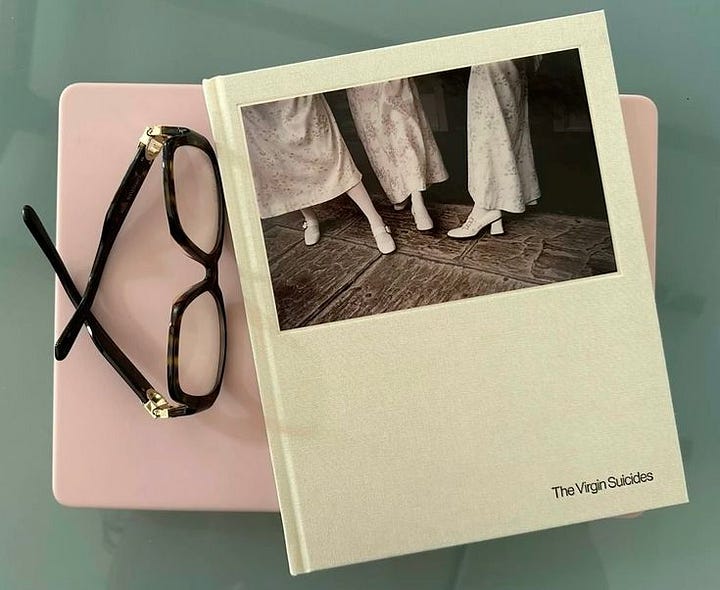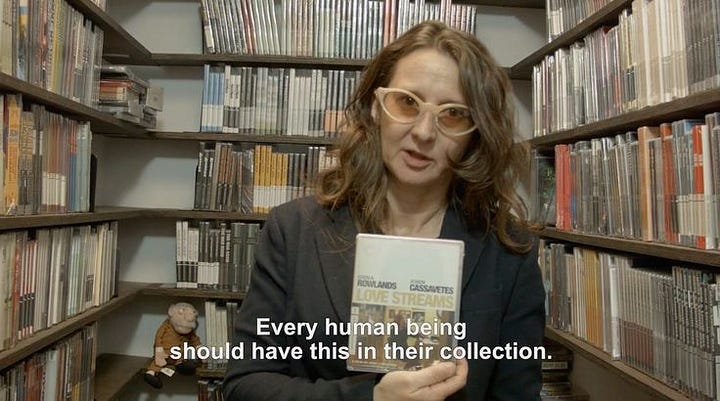Everywhere I turn lately, from social media experts to podcasts and threads, I hear the same message: If you want to create, stop consuming. It’s a clean dichotomy, seductive in its simplicity. On one side, the creator: focused, empowered, in motion. On the other, the consumer: passive, manipulable, faceless. But if life has taught me anything, it is this: Anything truly worth it resists simplicity.
This way of seeing the creative world doesn’t sit right with me, because I hate the feeling that to consume is to surrender, to become part of an audience, one more voice drowned in noise. No one wants that. Not when, everywhere we look, we’re told we could (and should) be building instead. Or at least I don't.
I've tried it. I've fallen into the trap of thinking I had to protect the "fragile" spark of my own ideas, keeping them from the enemies that come with consuming: comparison, insecurity, feeling left behind. But the silence that followed didn't become a fountain of creativity, as was promised. It actually made me feel disconnected. Dry. Alone.
So I fall back to opening my phone, hoping for inspiration, maybe a phrase, an image, a moment that lights something up. But five minutes later I’m comparing my unposted drafts to someone else’s polished reel, and fifteen minutes after that, I’m questioning whether I have anything original to say at all. The impulse that led me to consume in the first place, to feel moved, to see possibility, is replaced by paralysis. Because I'll never be good enough, smart enough, pretty enough or fast enough. There always seems to be someone "beating me" in some way, and that thought is like kryptonite to my creativity.
In my last essay, I wrote about how we’re living through the easiest time in history to be a creator. But maybe it’s also the hardest time to begin. We are drowning in content. Inspiration used to be rare, and because it was rare, we paid attention. Finding it was an event. A pearl on a beach. Now, we walk on a beach of pearls, stepping over them, scrolling past them, barely noticing. Or even getting to the point where it seems that inspiration is the enemy. Where, apparently, the solution is to block out all external input and search only within.
But not me. I don’t believe consumption is the enemy of creation. I believe it's where creation begins. No idea sprouts from a vacuum. There is no such thing as an "original idea." As I read in this essay by Noam, "A shared thought is not a weakness but a sign of resonance. In academia, it signals a well-founded argument. In life, it signals connection—that we are not alone in how we think or feel." Isn’t that the whole point of creation? Not to isolate, but to reach?
I believe that to consume is to hold space for someone else’s vision. To demand that the world only make space for our creations, without giving our attention to the work of others, isn’t just egotistical. It’s dangerous. If anything, I fear that to stop consuming is to stop connecting. And in today's reality, connection has never been more important.
What I’ve come to understand is that it’s not about whether or not you consume, but how. There is mindless consumption, and there is mindful consumption. The former numbs. The latter nourishes. It’s not about volume, it’s about intention. Not about input alone, but what we do with it. In the words of Stephanie Tyler in “Taste is the new intelligence”:
"We used to equate intelligence with accumulation. Those who knew the most were the smartest. But now, intelligence is curation. Taste is the new IQ. The question isn’t 'what should I make?' It’s 'what should I ignore?' The challenge isn’t drowning in inspiration, it’s learning to recognize signal from noise."
I've never felt so seen and in agreement with someone. Value is not in consumption anymore, it's not in the ability to find information—anyone can do that. Value is in what you do with the information you have available to you. I’m learning to consume like a curator. With reverence. Not making an enemy out of scrolling, but not just scrolling endlessly either. Instead, stopping when something strikes me. Asking why. Letting it linger. Rewatching, relistening, rereading until it stirs something. That’s when consumption transforms into a seed, one I can plant, water, and eventually shape into something of my own.
"If something strikes me as interesting or beautiful, first I live that experience. Only afterward might I attempt to understand it. Though we can’t change what it is that we are noticing, we can change our ability to notice [...] The universe is only as large as our perception of it. When we cultivate our awareness, we are expanding the universe. This expands the scope, not just of the material at our disposal to create from, but of the life we get to live."
— Rick Rubin, The Creative Act
I no longer want to consume as reflex, but as ritual. A creative ritual means letting what I take in provoke something else. Not necessarily a masterpiece, but movement. Curiosity. Response. I want to consume until something sparks, and then follow that spark.


So, must I stop consuming to start creating?
No. But I must consume differently. With curiosity instead of envy. I must remember that the goal isn’t to mute the world, but to tune it, to shape my algorithm and my attention like a sculptor, choosing which materials are worthy of being transformed.
Algorithms respond to what you consume, so your inputs shape your outputs. If you watch drama, it feeds you chaos. If you seek signal, it feeds you depth. The algorithm isn’t biased, it’s obedient.
— Stephanie Tyler, Taste Is the New Intelligence
Creation doesn’t demand that I turn my back on others. It asks me to listen better. To gather seeds. To feed my taste. To choose my inputs wisely. Because the truth is: I don’t want to be the only voice in the room. I want to be part of the chorus, and hopefully, add something to the melody.





